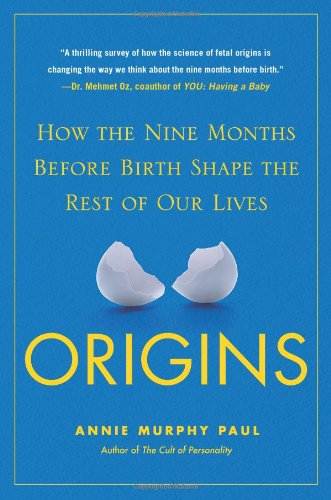More Females are Born in Times of Stress
A stress-related decline in the sex ratio is no anomaly, but a biological mechanism that evolved to keep the species going, according to Ralph Catalano, professor of public health at the University of California, Berkeley. “From an evolutionary perspective, in stressful eras it’s a smarter bet to have a female child than a male child. A daughter is more apt to provide you with grandchildren,” Catalano tells me. In hard times, he explains, weak males are less likely to survive and to reproduce, while females are more likely to carry on the family line. Women who are carrying a weak male fetus would do better, from a Darwinian point of view, to end that pregnancy and start another, this time carrying a female or a stronger male.
Notes:
It makes sense evolutionarily to have females during times of stress as males are less likely to survive.
Folksonomies: pregnancy fetal development
Taxonomies:
/society/social institution/marriage (0.497874)
/health and fitness/disorders/mental disorder/panic and anxiety (0.443098)
/family and parenting/motherhood/pregnancy (0.394084)
Keywords:
weak male fetus (0.967272 (negative:-0.314258)), Ralph Catalano (0.810671 (positive:0.394583)), weak males (0.764073 (negative:-0.458639)), stress-related decline (0.759486 (negative:-0.567053)), stressful eras (0.730288 (neutral:0.000000)), smarter bet (0.719917 (neutral:0.000000)), sex ratio (0.688217 (negative:-0.567053)), biological mechanism (0.682342 (neutral:0.000000)), Darwinian point (0.663917 (neutral:0.000000)), public health (0.656466 (neutral:0.000000)), evolutionary perspective (0.653955 (positive:0.224474)), stronger male (0.626156 (neutral:0.000000)), females (0.620117 (negative:-0.679188)), family line (0.611635 (neutral:0.000000)), female child (0.598750 (neutral:0.000000)), hard times (0.593011 (negative:-0.349579)), male child (0.591495 (neutral:0.000000)), grandchildren (0.335883 (positive:0.607645)), sense (0.301120 (negative:-0.679188)), daughter (0.294972 (positive:0.607645)), Berkeley (0.284908 (neutral:0.000000)), species (0.281264 (neutral:0.000000)), professor (0.280846 (neutral:0.000000)), University (0.280532 (neutral:0.000000)), California (0.280427 (neutral:0.000000)), Women (0.275121 (negative:-0.314258))
Entities:
Ralph Catalano:Person (0.863067 (positive:0.394583)), professor of public health:JobTitle (0.306889 (neutral:0.000000)), University of California:Organization (0.270292 (neutral:0.000000)), Berkeley:StateOrCounty (0.264652 (neutral:0.000000))
Concepts:
Sex (0.989386): dbpedia | freebase
Male (0.763196): dbpedia | freebase | opencyc
Female (0.759240): dbpedia | freebase | opencyc
Reproduction (0.714242): dbpedia | freebase
Gender (0.692111): dbpedia | freebase
Evolution (0.676588): dbpedia | freebase | opencyc
Human (0.666670): dbpedia | freebase | opencyc
Hermaphrodite (0.612334): dbpedia | freebase | opencyc





